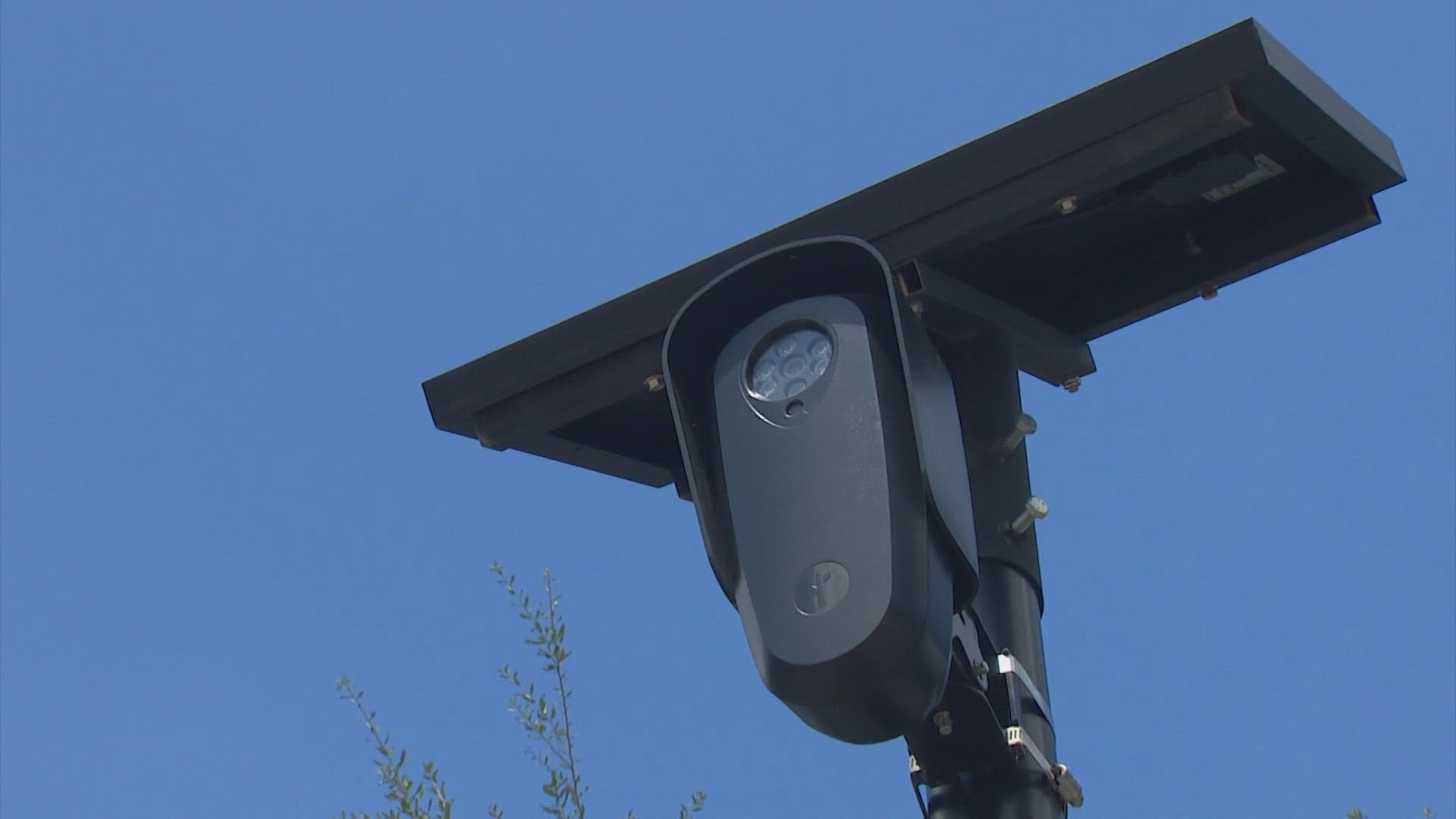HOUSTON — The Texas Department of Public Safety told a popular surveillance company it must stop operations for private technology used across the state because it allegedly lacks the proper license.
In a July 10 letter to the company Flock Safety, Texas DPS said, "It has been reported to the department that you have operated as a private security officer/business without a license."
The letter was first reported by The Galveston County Daily News.
The issue does not impact government or law enforcement use of Flock's technology.
Flock sent KHOU 11 the following statement:
"Flock has been proactively working with the Texas Department of Public Safety to determine which licenses apply to Flock. When DPS informed us we need to complete a certification process for a private investigations license, we immediately initiated the process and we anticipate we will obtain the official certification shortly. This will not change how we serve customers throughout the state.
"None of this has any effect on Flock cameras owned by Texas law enforcement agencies. Flock technology currently assists 300+ law enforcement agencies across the state of Texas in solving hundreds of crimes, including homicides, assaults, kidnappings, and more, on a daily basis. Flock cameras throughout Texas remain in operation to help keep communities safe."
Flock's cameras have exploded in popularity across the state for the past several years -- being used by governments, police departments and private entities like HOAs.
Those license plate readers were used in helping track Athir Murady, the man accused of killing Harris County Precinct 4 Constable Maher Husseini.
Last year, KHOU 11 reported on a case of the death of an Alief ISD teacher where Sugar Land Police used Flock data to help find the suspect in that case. But the data used then was from a neighborhood HOA Flock camera, not Sugar Land's.
As the company has gained popularity, the American Civil Liberties Union of Texas says there are larger concerns beyond licensing.
"These companies are building a gigantic nationwide database of license plates that raise some really serious privacy and safety concerns," ACLU of Texas policy and advocacy strategist Nick Hudson told KHOU 11.
The ACLU said while there are legitimate uses for such technology, there are privacy concerns.
Flock said its data is deleted after 30 days to address such concerns, but the ACLU hopes governments can build stricter, legal guardrails.
"We need enforceable standards to ensure that those are adhered to and local governments, police departments, city councils can make sure that those are in place," Hudson said.

